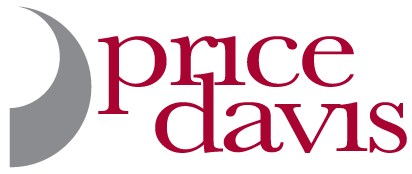If you’ve recently started earning additional income, come into some money, or have received gains from any investments, you may be required to declare it to HMRC and complete a Self Assessment tax return.
If you’re wondering whether you may or may not need to register for Self Assessment, we’ve outlined some of those conditions.
What Is Self Assessment Tax?
You may not be surprised to learn that Self Assessment tax is a way of paying your tax.
Put simply, Self Assessment is the process of calculating your taxable income, or any additional taxable income that you may have made throughout a specific period, and declaring it to HMRC for payment.
The vast majority of Brits will be taxed ‘at source’ through their PAYE scheme. However, under Self Assessment you are personally required to calculate your taxable income yourself – hence the ‘self’ bit – HMRC will then confirm your total tax liability for that period for you to pay.
Under what Circumstances do I need to complete a SA tax return?
Not all income received is considered taxable income, and therefore isn’t subject to being disclosed via Self Assessment – for example, if you sell your car for more than your paid for it, you may think that is classed as a capital gain, however certain gains such as this are not classed as taxable.
So what is classed as taxable income? The list below highlights some of the income streams that HMRC currently considers to be taxable and therefore subject to declaration via Self Assessment:
- You are self-employed as either a sole-trader or a partner within a partnership
- You are a trustee or the executor of an estate
- You are a company director, if you have income that is not taxed under PAYE
- You have untaxed income. This could be, for example, interest that is not taxed before it is paid to you or rental income
- You have taxable foreign income (although there is an exclusion if your foreign income consists solely of less than £300 of dividend income)
- You have income from savings and investments of £10,000 or more before tax
- You have reportable profits made on selling or disposing of more than one asset (‘chargeable gains’)
This is of course not an extensive list, there are various thresholds to consider and there may be certain cases where one of the above does apply to you, but you do not necessarily need to complete Self Assessment due to other circumstances.
Arguably the most definitive sign that you may need to complete a Self Assessment tax return though is if you receive correspondence from HMRC requesting to complete a tax return – best not to ignore that signal!
What Records Should I Keep?
If you’re self employed or otherwise not paying tax through a PAYE scheme, there is a legal requirement for you to keep ongoing records of your income and expenditure.
If HMRC decide to check your tax return they may require access to your record – if these aren’t accurate or complete, you may face a penalty charge.
As a rule of thumb, it would be prudent planning if you feel you may need to complete a Self Assessment tax return to keep hold of any documents such as invoices, receipts, or any other document that confirms a transaction of any kind.
Currently there is no right or wrong way to keep your records really, particularly if you are only filing a one off return – as long as they are somewhat organised within the corresponding period you could keep your receipts & invoices secured in a shoe box.
However, HMRC’s flagship campaign is their ‘Making Tax Digital’ scheme, under which they are attempting to ensure all businesses migrate their record keeping to a digital form. If you are self employed it may be much more convenient & time efficient come tax time to log them into a digital platform such as Xero. This can save you and/or your accountant valuable time when the deadlines are fast approaching.
You can find more in depth information on record-keeping for Self Assessment here GOV.UK.
What are the important SA tax dates to know?
There are several key dates you should know if you think you need to complete a Self Assessment tax return. The key ones are highlighted below:
| 6th April | The start of a new financial year. Your tax liability will be calculated from transactions conducted from this date. |
| 5th April | The end of the financial year. Your tax liability will be calculated from transactions conducted until this date.
|
| 5th October | The date you need to be registered for Self assessment if you’re a self employed sole-trader or partnership. |
| 31st October (midnight) | The deadline for submitting your Self Assessment return by paper.
This is covering the previous year’s liability e.g. if you are calculating your liability for the period between 6th April 2019 – 5th April 2020 the final deadline for submission is 31st October 2020. |
| 31st January (midnight) | The deadline for submitting your Self Assessment return online.
This is covering the previous year’s liability e.g. if you are calculating your liability for the period between 6th April 2019 – 5th April 2020 the final deadline for submission is 31st January 2021. |
| 31st January (midnight) | The deadline to pay your tax liability for the calculated year or to make the first payment on account. |
| 31st July | Deadline to make the second payment on account if required. |
Final Thoughts
If you are at all unsure whether or not you will be required to complete a Self Assessment tax return, the best thing to do is to get in touch with an accountant as soon as possible.
It can be quite difficult to understand all the rules and processes involved if you are completing your tax return as a one off, or if you are a business owner you may prefer an accountant to take care of this for you so you can continue to focus on running your business.
At Price Davis we have a wealth of experience in dealing with one off Self Assessment returns, as well as being able to provide proactive, ongoing support for the self employed, getting them set-up on digital record keeping software, and helping reduce their overall tax liability when and where possible.
Give us a call today on 01452 812491 or send us an email to info@pricedavis.co.uk

